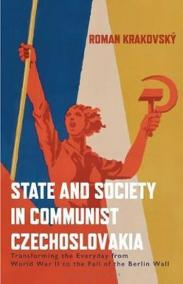State and Society in Communist Czechoslovakia
Dátum vydania: 01.02.2020
Across central and eastern Europe after World War II, the newly established communist regimes promised a drastic social revolution that would transform the world at great pace and pave the way to a socialist future. Although many aspects of this utopian project are well known - such as fast-paced industrialisation, collectivisation and urbanisation - the ...
Naša cena knihy: 54,94 €
Zasielame: Vypredané
Detaily o knihe
Počet strán: 352
Rozmer: 141x217x24 mm
Hmotnosť: 450 g
Jazyk: Anglicky
EAN: 9780755600137
Rok vydania: 2020
Žáner: Právo, sociológia
Typ: Paperback
Zákazníci, ktorí si kúpili túto knihu, si kúpili aj...
O knihe
Across central and eastern Europe after World War II, the newly established communist regimes promised a drastic social revolution that would transform the world at great pace and pave the way to a socialist future. Although many aspects of this utopian project are well known - such as fast-paced industrialisation, collectivisation and urbanisation - the regimes even sought to transform the ways in which their citizens interacted with each other and the world around them. Using a unique analytical model based on an amalgam of anthropology, sociology, history and extensive archival research, award-winning scholar Roman Krakovsky here considers the Czechoslovakian attempt to 'reinvent the world' - 'time' and 'space' included - in this all-encompassing way.
Ranging from WWII to the fall of the Berlin Wall, his innovative analysis variously considers the impact of Stakhanovism, the impossible-to-achieve production targets intended to assert socialism's future potential; the attempt to replace Sunday's Christian attributes with socialist ones; and the profound changes brought about to the public and private spheres, including the culture of informing and the ways this was circumvented.
Across a wide range of case studies Krakovsky demonstrates both the far-reaching extent of the communist vision and the inherent flaws and contradictions that gradually destabilised it. This in-depth perspective is vital reading for all scholars of twentieth century history and politics.













